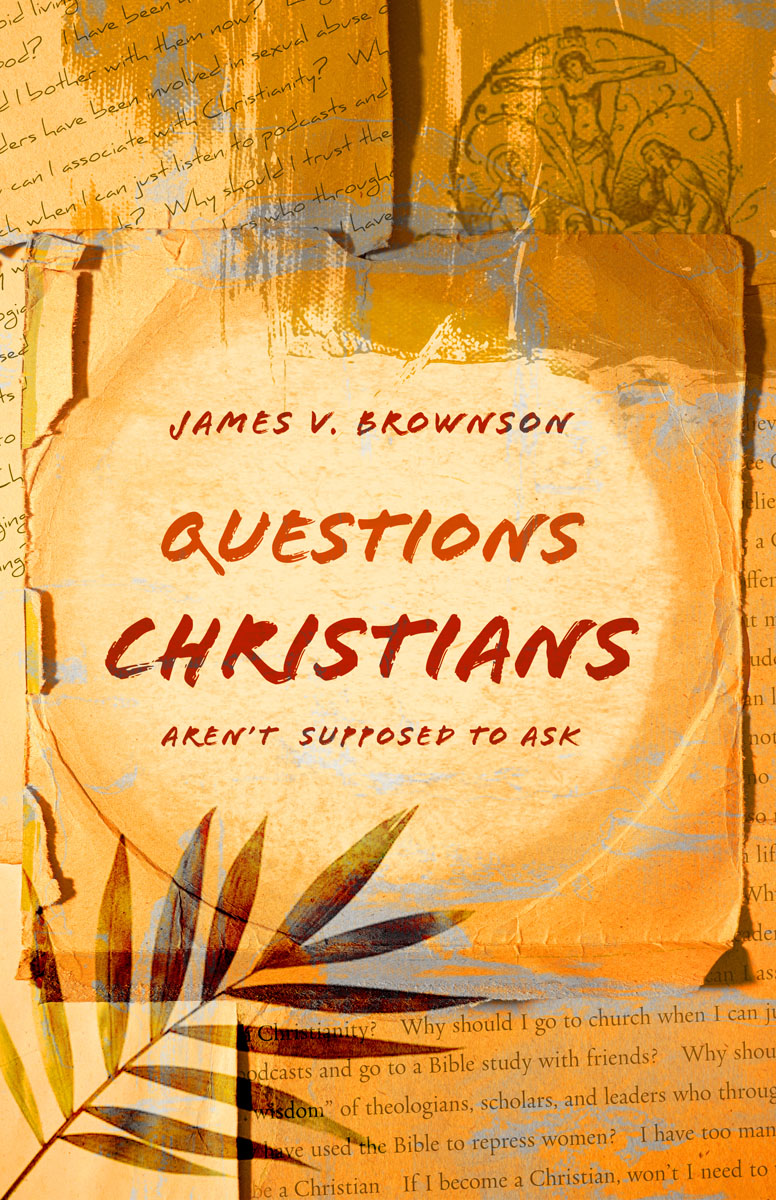

Wm. B. Eerdmans Publishing Co.
4035 Park East Court SE, Grand Rapids, Michigan 49546
www.eerdmans.com
2021 James V. Brownson
All rights reserved
Published 2021
Printed in the United States of America
27 26 25 24 23 22 21 1 2 3 4 5 6 7
ISBN 978-0-8028-7841-0
Library of Congress Cataloging-in-Publication Data
Names: Brownson, James V., author.
Title: Questions Christians arent supposed to ask / James V. Brownson.
Description: Grand Rapids, Michigan : William B. Eerdmans Publishing Company, 2021. | Includes bibliographical references and index. | Summary: An exploration of several tough questions commonly asked about Christianity, each one addressed through a reading of specific biblical passagesProvided by publisher.
Identifiers: LCCN 2020054723 | ISBN 9780802878410 (paperback)
Subjects: LCSH: Apologetics. | Bible. New TestamentCriticism, interpretation, etc.
Classification: LCC BT1103 .B76 2021 | DDC 239dc23
LC record available at https://lccn.loc.gov/2020054723
Contents
Introduction
This book focuses on the hard questions that younger people ask about Christianity and the church. I consulted with a wide range of young people to determine what were the most important questions to address, as they saw it. I selected the questions they thought were most important. But this book is written for those who love and care about these people rather than for the people asking the questions themselves. The reason for this is fairly simple: younger people asking these sorts of questions are probably not going to buy books to address their questions. But their parents and friends may well do so!
There is a second reason for the intended audience. Im a New Testament scholar, and for each question, rather than trying to find a comprehensive answer, I explore a specific biblical text, to see how it both reframes and refocuses the question, but also how, at least to some extent, it answers the question. Those without a certain reverence for Scripture may not find these biblical explorations worthwhile, but their family and friends might. So it is this latter group that I have kept in mind as I have written this book. I hope you find it helpful!
1

Hypocrisy
If there is so much hypocrisy in the church, why should I believe and join it?

Matthew 6:16
It doesnt take detailed analysis to recognize the various forms of hypocrisy that permeate Christian religious organizations today. Christians from many different walks of life are concerned about some issues but tend to be oblivious to (or at least less sensitive to) other issues. Conservative Christians radically oppose gay marriage, but sometimes they dont seem nearly as worried about the sexual misconduct of the straight people in their own churches (including such obvious problems as divorce and remarriage, addressed explicitly in a variety of texts) or sometimes even the misbehavior of their own leaders. Progressive Christians often work hard to oppose the death penalty but can sometimes seem far less concerned about the death of babies through abortion. In these cases, public positions easily seen by others are clearly in viewexactly what Jesus addresses in Matthew. Lots of people in our culture worry about these issues. This chapter will explore Matthew 6:16, to see how it addresses the question at the beginning of the chapter.
1 Beware of practicing your piety before others in order to be seen by them; for then you have no reward from your Father in heaven.
2 So whenever you give alms, do not sound a trumpet before you, as the hypocrites do in the synagogues and in the streets, so that they may be praised by others. Truly I tell you, they have received their reward. 3 But when you give alms, do not let your left hand know what your right hand is doing, 4 so that your alms may be done in secret; and your Father who sees in secret will reward you.
5 And whenever you pray, do not be like the hypocrites; for they love to stand and pray in the synagogues and at the street corners, so that they may be seen by others. Truly I tell you, they have received their reward. 6 But whenever you pray, go into your room and shut the door and pray to your Father who is in secret; and your Father who sees in secret will reward you.
If we are to make sense of Matthew 6 and its particular focus on hypocrisy, we need to begin by looking at the original meaning of the word hypocrite. In early Greek usage (long before the time of Jesus), this word was used neutrally of an orator, or even more commonly, of an actor. By the time the New Testament was written, however, the meaning of the word had turned decidedly negative. A hypocrite was still an actor, as in earlier literature, but now more particularly in the sense of a pretender, or dissembler. The word was rarely used during the New Testament period in an explicitly theatrical sense but almost always in a general, more negative sense. Its focus falls on the gap between someones true identity and the identity the person is projecting at any particular moment. The central problem for hypocrites in the New Testament period was thus the loss of a coherent identity, and an increase in behavior directed to specific people in search of specific sorts of praise or commendation, rather than the pursuit of an authentic identity.
This is the understanding of hypocrisy that dominates the New Testament and, to a large extent, contemporary thinking as well. Religion becomes hypocritical particularly when certain religious behaviors can be used to increase ones public status. We see this pattern clearly in a text such as Matthew 6:16. Twice in this passage, Jesus warns against acting like the hypocrites (vv. 2 and 5). He speaks of hypocrisy in conjunction with specific religious practices: almsgiving and praying. In each case, Jesus emphasizes that the primary concern of hypocrites is really the attempt to win the favor of others. In each case, he says, Truly I tell you, they have received their reward. One might translate more literally, Truly I tell you, they get their pay. The reward/pay, of course, is the approval of others (rather than the claimed religious motive of divine approval).
So here is the heart of hypocrisy, for Jesus. People engage in ostensibly religious behaviors such as almsgiving and prayer that appear to have God as their object and goal. However, in reality, the object and goal is public status. As Jesus sees it, people engage in the public exercise of religious practices in order to gain public status. According to Jesus, when people do this, they get their pay; they receive the public status they are pursuing, and any further soliciting of divine approval is essentially irrelevant. A religious practice is engaged, but the real reasons for the practice are not at all religious; the focus is instead on public approval.
One might question whether, particularly in a Western, postreligious culture like ours, this would continue to be a problem. Religious behaviors do not grant persons the same broad public status today that they did in previous eras. But Western, postreligious culture does consist of interest groups that do have specifically religious interests and values. Thus, whereas some religious practices may not gain a person broad social status within the culture as a whole, they may enhance social status within a specific, more religiously oriented group. This is not unlike the situation faced by Jesus himself. The Roman occupiers of Judea and Galilee would have had little interest in the religious behaviors Jesus was talking about, and those behaviors would have gained their practitioners no status in the eyes of the Roman occupiers. But among the religious leadership, such religious behaviors were clearly valued, and enacting them would cause one to be held in high regard, reinforcing the temptation to hypocrisy that Jesus spoke about.
Next page
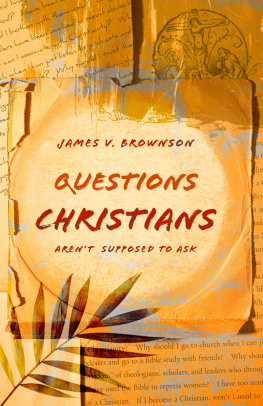

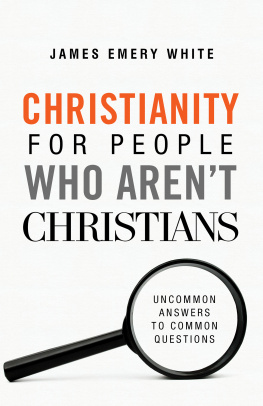
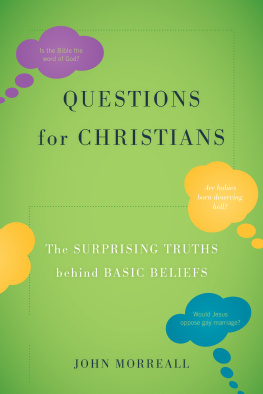


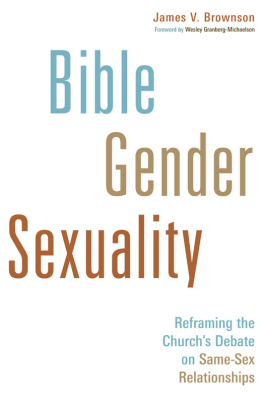




 Hypocrisy
Hypocrisy